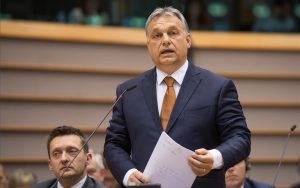Disclaimer: This essay was written in 2017 as part of the assessment for the political science class “EU-Middle East Relations”. Some edits have been made.
The economic triggers of the Arab Uprisings
In view of the developments since the popular uprisings, often denoted as the “Arab Spring”, erupted in 2011 in Tunisia and from there spread across the Middle East and North Africa (MENA), it is apparent that the protests led to differing outcomes in the countries that experienced upheavals. Whereas Tunisia managed a quasi-transition to democracy or, rather, a ‘cosmetic democracy’, other countries did not achieve the same outcome. Some, such as Egypt, experienced a return to a repressive regime that is still far from democracy; others experienced further suppression and the eruption of a civil war – a prime example being Syria. Overall, the region continues to be marked by instability up until today.
A number of authors have engaged in a debate on the causes and triggers of the upheavals as well as on the reasons for the resilience of authoritarianism in the region (See, among others: Kandil, 2012; Volpi, 2013; Pace, 2014). Even though there is broad consent that the EU’s approach to the region and its democracy promotion was driven by self-interest and marked by its support of authoritarian regimes (See: Pace, 2014; Durac and Cavatorta, 2009; Youngs, 2002), scholars nonetheless seem to differ about the reasons for the sudden uprisings in the MENA region.
Although most scholars agree that the protesters initially demanded fundamental human rights, such as justice, freedom and democracy, some also analyse the uprisings from a socio-economic perspective (See: Bogaert, 2013; Joya, 2011; Joya, 2017), arguing that, looking at the demands that drove the people to the streets to protest, it is evident that the uprisings were not only directed against the countries’ authoritarian regimes; they were also an expression of the people’s despair over their own economic situation, which came as a result of the neoliberal reforms promoted and imposed by international financial institutions as well as the European Union. Maya Mikdashi, for example, argues that the protests were not only a rejection of neoliberal policies but also constituted by them. Neoliberalism assumes that only certain individuals are able to participate in the free markets it promotes and that those people are able to express themselves and take part in those markets without the fear of having to bear any consequences. This is to say that, Neoliberalism not only promotes democratisation and human rights, but it also makes the population reflect and realise their own role as rational beings. She further asserts that the protesters are speaking through ‘neoliberalism’s forked tongue’ (See: Gelvin, 2012: 30; Mikdashi, 2011). Thus, besides their longing for democracy, the protests also called for greater social and economic justice (Bogaert, 2013: 214).
Whilst over the last decades, institutions such as the European Union regarded economic and neoliberal reforms as the path to democracy, leading to a so-called ‘spillover effect’ and resulting in good governance and democratisation (Günay, 2016: 12), the uprisings should have indicated that neoliberal globalisation in the MENA countries rather exacerbated the situation (Ibid.: 7). Nonetheless, the neoliberal policies that have initially deteriorated the socio-economic situation in the region continued to be implemented after the uprisings (Joya, 2017: 344). Moreover, specifically looking at the EU’s approach to the region within the ENP framework, we can see that there is a long tradition of promoting democracy while at the same time supporting neoliberal reforms in the MENA countries, drawing on the ill-conceived assumption that economic reforms and economic development are inherently linked to democratisation
The objective of this essay is to shed light on the EU’s approach to the MENA region after the Arab Uprisings. However, instead of merely focusing on EU democracy promotion or neoliberal policies in isolation, the aim is to combine these two elements and draw on the argumentation by, among others, Bogaert, Joya, and Günay, that there is a bias in the EU’s democracy promotion in that it links neoliberal reforms to democratisation. I thus critically analyse whether the EU, after the uprisings, continuously focused on the economy and the promotion of economic and neoliberal reforms with regard to democratisation and, therefore, further on considers economic development as a pre-condition for democracy. I will argue that despite the negative impact neoliberalism has had on the region over the past decades, the EU seemingly has not learned from the uprisings and has not reviewed its approach towards the region. On the contrary, it continues to focus on the economy, presenting economic development as a ‘conditio sine qua non’ for democratisation. Due to the limited scope of this essay, this paper focuses on Egypt, being a specifically interesting case as the uprisings have, contrary to Tunisia, not led to democratisation and instead resulted in further repression by the government.
As the main source for the analysis, an official EU document, the Single Support Framework for European Union Support to Egypt for the period of 2017-2020, will be used. Additional references to the revised European Neighbourhood Policy (ENP) of 2015 will be made to strengthen my argumentation and underline the examples I provide from the Single Support Framework, whose anticipated results are in line with those of the revised ENP.
The theory of Neofunctionalism serves as the theoretical approach. Looking at EU democracy promotion through the lens of Neofunctionalism enables us to shed light on how the EU links democracy promotion and its aim for democratisation to economic development in the Single Support Framework of 2017 and, prior to it, in the revised ENP of 2015, by assuming a “spillover effect” that will be explained in more detail down below.
The article is structured as follows: First, I lay out the theoretical framework and the methodology used for the analysis of the EU policy documents. Secondly, I provide a short explanation of the history of neoliberalism promoted by the EU and other international organisations in Egypt. Here, I also draw upon the presumed link between neoliberal reforms and democratisation. Then, the analysis of the Single Support Framework for 2017-2020 follows. Finally, I draw conclusions and outline the limitations of this study.
Theoretical framework and methodology
As outlined above, this is a single case study focusing on Egypt. As a theoretical framework, the theory of Neofunctionalism proves to be appropriate. Various other concepts and theories have been under review that could potentially be applicable. For example, the concept of neoliberal governmentality could have been employed to examine the EU’s approach to the region or the framework of Critical Discourse Analysis (CDA) for the analysis of the official EU documents. However, since the aim of this essay is to point out the EU’s continuous focus on economic factors and how it assumes economic development to have a positive impact on democracy, the theory of Neofunctionalism provides a convenient framework.
Neofunctionalism is a theory about the driving factors behind European integration and acts on the assumption of rational and self-interested, national or supranational actors. Moreover, the institutions that have been established may ‘take a life on their own and (…) employees of regional institutions become agents of further integration’ (Niemann and Schmitter, 2009: 48). Additionally, Neofunctionalism assumes that economic interdependencies foster further integration, hence, leading to an automatic spillover effect (Niemann and Schmitter, 2009: 49). According to the theory, the interdependence of some sectors make them inseparable from others and the integration of one sector generates a spillover, leading to further integration of other sectors (Ibid.). Here, the notion of ‘functional spillover’ denotes the ‘functional-economic rationale for further integration’ (Niemann and Schmitter, 2009: 49).
Even though this theory of European integration was initially used to explain European integration history, from the establishment of the European Coal and Steel Community (ECSC) to the European Economic Community (Niemann and Schmitter, 2009: 45), it can nowadays be equally used to explain processes in European external governance and European external relations, as the EU tries to exert its influence and implement policies outside its territory. As this essay examines the EU’s persistent focus on the economy in its support of Egypt after the uprisings and how the economy and neoliberal reforms are linked to the topic of democracy in EU policy documents, assuming economic development will generate liberalisation of political rights and democratisation through a spillover effect, the theory of Neofunctionalism thus provides a suitable framework to scrutinize the relevant EU policy documents.
The next section offers a short introduction to the history of neoliberal politics in Egypt and its effects on the domestic situation before I turn to the analysis of the official EU documents.
A short history of neoliberal reforms in Egypt
The political concept of neoliberal ideology advocates for liberalisation, privatisation, competitiveness, and laissez-faire (Joya, 2017: 342), meaning as little intervention from the state as possible. In addition, it aims at price stability, a balanced state budget, and austerity (Joya, 2017: 342).
Neoliberalism has a long tradition in the history of governance of the MENA region. Already in the 1970s, in the course of the global economic crisis, former Egyptian president Sadat began integrating Egypt into the global economy, which was predominantly Western-oriented (De Smet and Bogaert, 2017: 214). Moreover, international actors such as the US, the World Bank, the IMF, the UN as well as the EU granted Egypt debt relief and initiated the neoliberal restructuring of the MENA countries’ economies according to free market principles (Joya 2011: 370; İşleyen, 2015: 674) as a form of development strategy (De Smet and Bogaert, 2017: 213). Neoliberalism was assumed to counteract corruption and the waste of public funds and that a free market would automatically lead to the rational allocation of resources (Joya, 2017: 343).
Additionally, in the 1990s, Egypt implemented a so-called Economic Restructuring and Adjustment Program, ERSAP, by the IMF (Kandil, 2012: 208), that aimed at ‘the privatisation of public sector enterprises, the liberalisation of trade and prices, the introduction of flexible labour legislation and the removal of progressive social policies’ (Joya, 2011: 370) in order to reduce foreign debt and inflation (De Smet and Bogaert, 2017: 221).
Privatisation was considered one of the most important neoliberal strategies for development, as it was assumed to decrease corruption and clientelism, as well as undercut the inefficiency of state-owned enterprises. Yet, privatisation led to so-called ‘crony capitalism’ (Gelvin, 2012: 18), the transfer of corporations from the public sector into private possession, which created a new economic elite (De Smet and Bogaert, 2017: 221; Joya, 2017: 343), also denoted as ‘crony capitalists’.
Another feature of neoliberal reforms is economic liberalisation, which was presumed to generate a spillover to political liberalisation (Ibid.: 213-14). However, it came as a benefit to domestic as well as foreign investors and resulted in increasing wealth and power of landlords and businessmen, also so-called ‘crony capitalists’ (Joya, 2011: 371). In sum, Egypt’s economic crisis could not be solved by neoliberal reforms; instead, the crisis of capital accumulation worsened (De Smet and Bogaert, 2017: 222).
The European Union, in line with other international institutions, also promoted neoliberal programmes. As noted by Günay (2016), particularly trade liberalisation ‘constituted the core of the EU’s policies towards developing countries in its periphery’ (Günay, 2016: 15). The liberalisation of trade and the market itself was considered necessary to be able to participate in the global market, which would result in democratisation, more personal liberties and ‘good governance’ (Ibid.). In return for the liberalisation of service and investment, the EU would grant access to the EU single market (Günay, 2016: 17).
Assessing the impact neoliberal reforms had on the political landscape and developments in the region, it turns out that there is no link between neoliberalism and democracy. According to Günay:
‘Developments in Tunisia and Egypt showed that there is no correlation between economic liberalisation, economic growth, the reduction of poverty and democratisation.’
(Günay, 2016: 17)
Instead, economic liberalisation strengthened authoritarian rule as the regimes were provided with further powers for the distribution of resources (Ibid.: 18).
All in all, Joya (2011) summarises that:
‘After more than two decades of neoliberalism, Egyptian society has become more unequal in terms of social power and wealth while levels of social conflict have increased every year along with a rise in the cost of living (rent, health care, education and food), a stagnation of wages and a rise in unemployment.’
(Joya, 2011: 371)
According to some scholars and experts on the MENA region, the Arab uprisings came as a response to decades of promotion of neoliberal policies (See for example: Bogaert, 2013; Joya, 2017). However, examining the responses of international financial institutions and the international community in general, it appears that the promotion of neoliberal policies persists nonetheless (Joya, 2017: 344).
‘Assessments of reforms in Tunisia, Egypt and Morocco five years after the revolutions, however, indicate that neoliberalism has remained intact (Hanieh, 2015; Isleyen, 2015). States in the region continue to adopt policies that reproduce the same socioeconomic problems that increased poverty, unemployment and public frustrations with political elites.’
(Joya, 2017: 344)
The next section scrutinises the EU’s approach to Egypt after the Arab uprisings within the Single Support Framework for Egypt for the period of 2017-2020. The aim is to draw attention to the EU’s persisting focus on economic development and growth and on how it links the economy to democracy, making economic development a precondition for democratisation in its approach to the country.
‘It’s the economy, stupid!’: The EU’s support to Egypt within the Single Support Framework
As set out above, the main focus of this analysis is the European Union’s Single Support Framework for Egypt for the period of 2017-2020. The Framework is a bilateral assistance programme by the European Union in line with the European Neighbourhood Policy (ENP) (European Commission, 2017a: 4) and shall ‘review progress made, set out objectives and priorities for Union support, indicate expected results and set out the indicative level of funding (…)’ (European Commission, 2017a: 2). The financial allocations for the support framework amount to between EUR 432,000,000 and 528,000,000 for the period of 2017-2020 (European Commission, 2017a: 6).
As previously mentioned, this essay’s aim is to point out the European Union’s remaining focus on the economy and economic development when it comes to other countries’ democratisation, which is assumed to be generated by a spillover from economic development, in line with Neofunctionalist assumptions.
A closer look into the Single Support Framework reveals that already the introduction the document, when explaining the current situation on the ground in Egypt, refers to the socio-economic situation, thereby granting it a central role and making it appear highly important:
‘Egypt is struggling to make headway, admittedly in a very challenging environment marked by a deteriorating socio-economic situation (…)’
(European Commission, 2017a: 2)
‘The economic situation remains difficult, because of structural challenges to the economy exacerbated by the events since January 2011.’
(European Commission, 2017a: 2)
The perpetual focus on the economy is also reflected in the revised ENP, which was launched in 2015 prior to the Single Support Framework and claims that ‘The new ENP will make a determined effort to support economies and improve prospects for the local population’ (European Commission, 2015: 4). Also, the joint priorities within the ENP of 2015 grants ‘economic development for stabilisation’ (European Commission, 2015: 7) prevailing importance and such development shall be achieved, inter alia, through ‘macroeconomic stability and economic reform’ (European Commission, 2015: 7); thus, typical neoliberal approaches. Moreover, prosperity shall be achieved by granting MENA countries access to the EU market (European Commission, 2015: 8), making it questionable whether the EU’s intentions are as normative as they claim to be or if they may be rather selfishly chosen.
Turning in particular to the EU’s response to the ‘challenging situation’ and its ‘strategic objectives’ in the relationship with Egypt, the main priority remains the stabilisation and resilience-building of the country. This is to be achieved ‘particularly by boosting the economic development’ (European Commission, 2017a: 3, emphasis added), which has already been outlined in the ENP review of 2015 and the EU’s Global Strategy of 2016 (European Commission, 2017a: 3; see also: European Commission, 2017b). More precisely, the revised ENP of 2015 ‘has mobilised significant support to reforms in four priority areas’, one of them being ‘economic development for stabilisation’, as ‘Boosting sustainable economic development is at the heart of the EU’s contribution to stabilising the neighbourhood and is crucial for developing partners’ resilience’ (European Commission, 2017b).
According to the Single Support Framework, the focus during the period of 2017-2020 shall be increasingly placed on, among others, economic and social development (Ibid., emphasis added).
‘In this context, the main strategic objective for the EU’s relationship with Egypt is to contribute to the stability and prosperity of the country (…). This will be pursued through a well-calibrated engagement combining dialogue and support to political, economic and social reforms.’
(European Commission, 2017a: 3)
Thus, economic growth and prosperity are considered the solution to combat instability and will result in an overall improved situation on the ground.
Nonetheless, further below, the EU also mentions its objective to address political challenges, such as the path towards democracy:
‘Apart from addressing economic and social challenges in Egypt, important work remains to be done also on the political track and on the path towards democracy, which are key to sustainable and economic development. Accordingly, the aim is to support the country’s democratic consolidation as well as sustainable and inclusive development.’
(European Commission, 2017a: 3, emphasis added)
Here, it becomes apparent that apart from granting economic development major importance, the EU continues to link development and democratisation to each other.
Additionally, the document refers to the EU-Egypt partnership priorities of the revised ENP of 2015, which also ‘(…) include support to Egypt’s sustainable economic and social development (…)’ yet, ‘They also include important commitments and references to democracy, rule of law, respect for human rights (…)’ (European Commission, 2017a: 3, emphasis added). Moreover, from these partnership priorities, so-called ‘sectors of intervention’ are defined that aim at addressing common interests and providing stability in the long term (European Commission, 2017a: 6).
The first sector, with a total of 40% of the total budget, is devoted to the economy, focusing on the need for economic modernisation, energy sustainability and the environment (Ibid.). The second sector, also constituting 40% of the total budget, refers to social development and social protection (Ibid.). It is, therefore, surprising that, while the EU claims democratic governance to be a priority area, ‘Governance, enhancing stability and modern democratic state’ is only found in the third sector, endowed with only 10% of the total allocations (European Commission, 2017: 5; 6). It is then even more astonishing that, albeit this specific sector should address the issue of democracy, yet again, the country’s socio-economic challenges are mentioned (Ibid.):
‘While Egypt’s political “roadmap” towards democracy has been formally implemented, a number of socioeconomic challenges, regarding governance, poverty, social and economic inequality, and lack of opportunity for the young, remain to be addressed (…)’
(European Commission, 2017a: 6)
The remaining 10% of the total allocations are dedicated to the ‘Complementary support for capacity development and civil society’ (European Commission, 2017a: 6).
Scrutinizing the EU support per sector, one can see that each sector provides overall and specific objectives that are aimed to be achieved (European Commission, 2017a: 7ff.). Looking at these, it is evident that significant emphasis is placed on the first sector with the overall objective of ‘inclusive economic growth’ (European Commission, 2017a: 7), which is provided 40% of the budget. Specifically, the EU aims to
‘(…) promote inclusive economic development and create decent job opportunities that respond to market demands in support of Egypt’s Economic Reform Programme (…) support sustainable development and a better quality of life (…)’
(European Commission, 2017: 7)
The second sector, also equipped with 40% of the total allocations, seeks to address the social and demographic challenges as overall objective and the protection of marginalised groups, that may be negatively impacted by the reforms as a strategic objective (European Commission, 2017a: 10).
The third sector, which addresses the issue of democratisation, puts forward the overall objective of supporting a ‘process towards increased democratic governance, structural reform and political, social and economic stabilisation’ (European Commission, 2017a: 12, emphasis added). Specifically, the objectives are to, first and foremost, support participatory governance that acts effectively and accountable. Secondly, among others, the values of democracy, rule of law and human rights shall be promoted and protected. And thirdly, promote transparency in terms of fiscal affairs and public finance, which is equally reasonable (European Commission, 2017a: 12). Thus, the European Union, in the very sector that addresses democracy, once again focuses on democratisation while simultaneously emphasising the importance of ‘economic stabilisation’, thereby inextricably linking the two.
The next and final part of this essay summarises the main points, draws a conclusion of the analysis and sets out the limitations of this study.
Conclusion
To conclude this essay, I want to stress the fact that there is a vast amount of EU policy documents accessible and hence, finding the one suitable for the purpose of this essay that provides sufficient information proved to be challenging. However, the Single Support Framework presents a particularly interesting document, as it engages specifically with Egypt, whereas others, such as the ENP of 2015, address the whole neighbourhood region more generally, from the countries included in the Eastern Partnership to those in the Union for the Mediterranean. In general, I likewise want to admit to the fact that scrutinising EU documents, as it is with other policy documents in general, leaves a great leeway since one can never be completely sure of the drafter’s or, in this case, even the EU’s intention. That is to say that the analysis of official documents offers space for assumptions, as the wording mostly remains rather vague.
Nevertheless, all things considered, it can be seen from the above analysis of the Single Support Framework that the European Union maintains a considerably strong focus on economic issues by granting it a central role in its approach towards Egypt and, most likely, to the whole region. Moreover, a considerable amount of the framework’s budget, in total 40%, is allocated to the sector that focuses on economic development, whereas the sector that supports democratisation is only endowed with 10% of the total allocations. All in all, the general emphasis remains on economic growth which is equated to development.
By the same token, the economy and socio-economic development are often linked to the objective of democratisation, assuming economic progress to be inherently connected to or even a precondition of democracy. This may be based on the Neofunctionalist assumption that integration and from it resulting development in one sector spills over to other areas. Hence, the presumption that integration of economic affairs generates similar positive effects in other areas, in this case leading to further democratisation.
As also demonstrated above, in the sections of the document that explicitly refer to democracy and democratisation, the overall objective, nevertheless, mentions the importance of economic stabilisation. It is thus, combining the two, economic development and democratisation, assuming that one is conditional upon the other.
All in all, it can be concluded that the EU may have to reconsider its approach to the region and review its policies. Granting economic development major importance may eventually address the people’s demands for better living conditions. However, reviving previous neoliberal policies and repeating the same patterns that deteriorated the situation in the MENA region in the first place will likely lead to undesired outcomes and exacerbate the situation further. Instead, the focus should be placed on addressing the demands of the people, enhancing social and economic justice and improving their overall living conditions.
Sources Primary literature Bogaert, K. (2013): Contextualizing the Arab revolts: The politics behind three decades of neoliberalism in the Arab world. In: Middle East Critique, 22(3), 213-234. De Smet, B.; Bogaert, K. (2017): Resistance and Passive Revolution in Egypt and Morocco. In: States of Discipline. Authoritarian Neoliberalism and the Contested Reproduction of Capitalist Order, p. 211-233, Rowman & Littlefield International. European Commission (2015): Joint Communication to the European Parliament, The Council, The European Economic and Social Committee and the Committee of the Regions, Review of the European Neighbourhood Policy, JOIN(2015) 50 final. European Commission (2017a): Commission implementing decision of 30.10.2017 adopting a Single Support Framework for European Union Support to Egypt for the period of 2017-2020, C(2017) 7175 final. Gelvin, J. L. (2012): The Arab uprisings: what everyone needs to know. Oxford University Press, USA. Günay, C (2016): Reality check: Why the EU needs to rethink its neighbourhood policy. In: Euromesco Paper 29, European Institute of the Mediterranean. Joseph, J. (2009): Governmentality of What? Populations, States and International Organisations. In: Global Society, 23:4, 413-427. Joya, A. (2011): The Egyptian revolution: crisis of neoliberalism and the potential for democratic politics. In: Review of African Political Economy, 38:129, 367-386. Joya, A. (2017): Neoliberalism, the State and Economic Policy Outcomes in the Post-Arab Uprisings: The Case of Egypt. In: Mediterranean Politics, 22:3, 339-361. Kandil, H. (2012): Why did the Egyptian middle class march to Tahrir Square?. In: Mediterranean Politics, 17(2), 197-215. Mikdashi, M. (2011): Neoliberalism’s Forked Tongue, URL: http://www.jadaliyya.com/Details/23999/Neoliberalism%60s-Forked-Tongue, last access: 6th Januar, 2018. Pace, M. (2011): Liberal or social democracy? Aspect dawning in the EU’s democracy promotion agenda in the Middle East. In: The International Journal of Human Rights, 15:6, 801-812. Teti, A. (2015): Democracy without social justice: Marginalization of social and economic rights in EU democracy assistance policy after the Arab uprisings. In: Middle East Critique, 24(1), 9-25. Secondary literature Durac, V., & Cavatorta, F. (2009): Strengthening authoritarian rule through democracy promotion? Examining the paradox of the US and EU security strategies: the case of Bin Ali’s Tunisia. In: British journal of Middle Eastern studies, 36(1), 3-19. European Commission (2017b): Revised European Neighbourhood Policy: supporting stabilisation, resilience, security, Press Release 18 May 2017, IP/17/1334, Brussels. Hanieh, A. (2011): Egypt’s Orderly Transition? International Aid and the Rush to Structural Adjustment, URL: https://bankwatch.org/bw_in_media/egypts-orderly-transition-international-aid-and-the-rush-to-structural-adjustment, last access: 7th January 2018. Pace, M. (2014): The EU’s Interpretation of the ‘Arab Uprisings’: Understanding the Different Visions about Democratic Change in EU‐MENA Relations. In: JCMS: journal of common market studies, 52(5), 969-984. Volpi, F. (2013): Explaining (and re-explaining) political change in the Middle East during the Arab Spring: trajectories of democratization and of authoritarianism in the Maghreb. In: Democratization, 20(6), 969-990. Youngs, R. (2002): The European Union and democracy promotion in the Mediterranean: a new or disingenuous strategy?. In: Democratization, 9(1), 40-62.
İşleyen, B. (2015): The European Union and neoliberal governmentality: Twinning in Tunisia and Egypt. In: European Journal of International Relations, 21(3), 672–690.
Joseph, J. (2010): The limits of governmentality: Social theory and the international. In: European Journal of International Relations, 16(2), 223-246.
Niemann, A.; Schmitter, P. C. (2009): Neofunctionalism. In: European integration theory, 45-66. Oxford Univ. Press.
Pace, M. (2011): Liberal or social democracy? Aspect dawning in the EU’s democracy promotion agenda in the Middle East. In: The International Journal of Human Rights, 15(6), 801-812.









Be First to Comment